Features
Perfect Characters in Video Games: A Perilous Pitfall
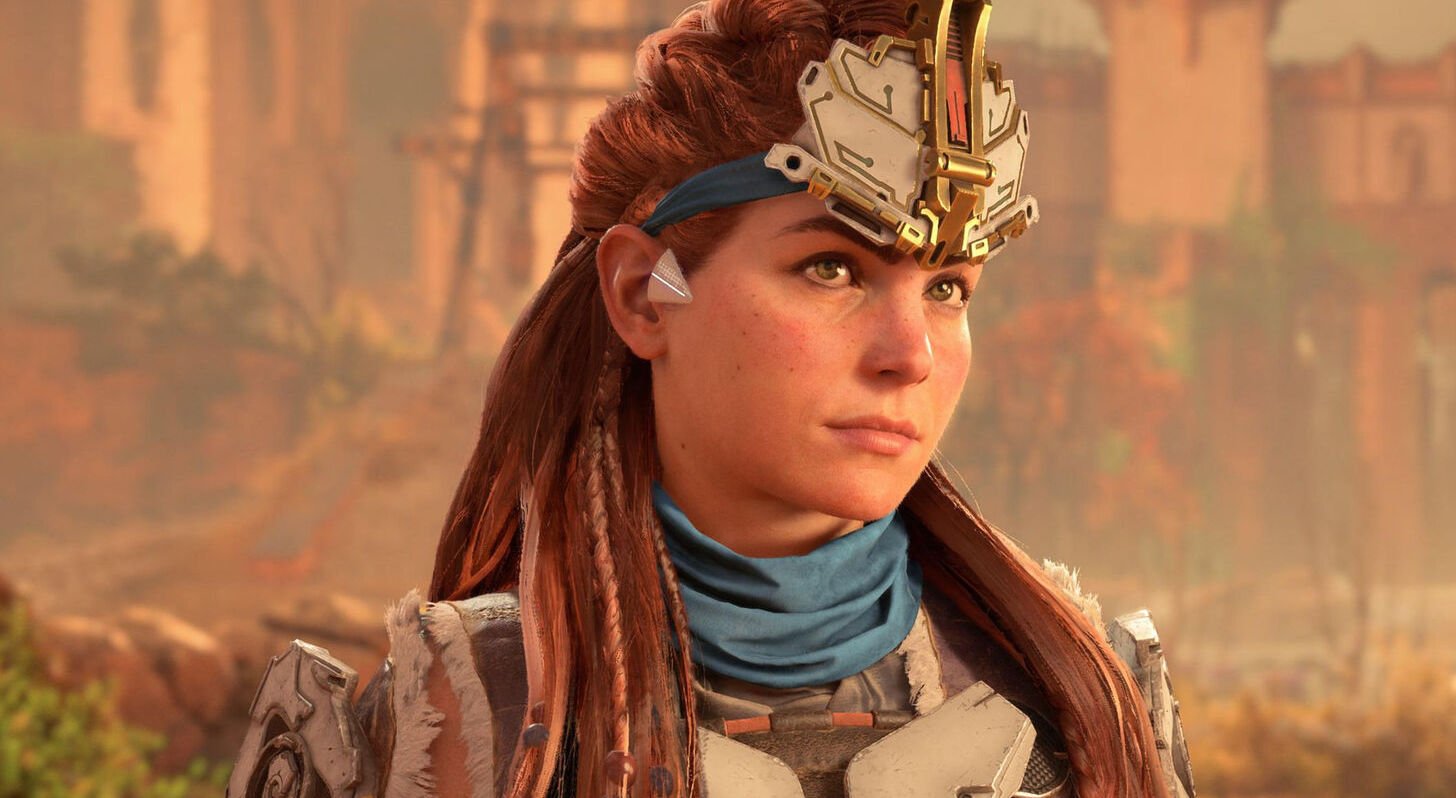
For better or for worse, our flaws are what make us unique, and it’s that individuality and variety that is the spice of life. Our flaws are what allow us to grow and better understand who we are and what we stand for. Nobody is born perfect and to expect otherwise demonstrates a fundamental misunderstanding of what it means to be human. It has been in the pursuit of that unattainable perfection that we have come to demand moral purity from everyone around us. That impossible goal has manifested itself in the only place in which perfection is possible: fiction. Over the course of the last ten years, there has been a growing societal pressure demanding morally pure and perfect people. This trend has led to an abundance of simplistic, boring, and completely unrelatable characters that stymie a developer’s storytelling potential.
With the explosion of the internet also came a more connected and communicative world than humanity had ever inhabited before. Hindsight being 20/20, as we were all learning how to maneuver our newfound interconnected world the rise of social media was almost an absolute certainty. As it’s human nature to care about and work to craft our appearance, the way in which social media would be used very quickly became a popularity contest. Facebook, Twitter, Instagram, and even LinkedIn have all become a means of presenting a proverbial highlight reel for our lives giving us the ability to carefully curate our image and how the world perceives us to a greater degree than ever before possible.
As a result of this curation, we are simultaneously able to hide our own flaws and imperfections while also never being able to see those flaws and imperfections that everyone else is aware of within themselves. The curation of image on social media has led to the idea of a perfectly morally pure person being possible despite that level of purity having never been considered desirable much less possible prior to the rise of social media. When taken to the logical extreme this demand has led to a simple guilty-by-association verdict in the court of public opinion. Whether it has been incentivized by profits or duress, unfortunately, this expectation that we have of each other has leaked into the media we consume, including video games.
Spoiler Warning: This article contains story spoilers for Horizon Forbidden West, Halo 5: Guardians, and Batman Arkham Origins.
One of the biggest and most successful games of 2022 was without a doubt Horizon Forbidden West. At the center of the much-anticipated sequel is the player character Aloy. Unfortunately for the game, Aloy is one of the latest victims of the demand for perfection. Throughout Aloy’s journey, she seems completely incapable of not stopping and helping every single person who calls out to her as she passes. While yes, the onus for this behavior is on the player for choosing to stop, the perfection is in how Aloy interacts with the non-playable characters but also in how those characters interact with her.
The term “damsel in distress” has become common in deep-dive analyses of video games and for good reason. The trope of a female character being completely helpless, incapable, and constantly needing the male protagonist’s help is sexist and shallow writing. But in the case of Aloy, the male protagonist is female and the damsel in distress is the entire world. Every single non-playable character in the game seems to fall into one of two camps: they either are in desperate need of Aloy’s assistance and incapable of helping themselves or they have made it their singular goal in life to kill Aloy. The damsel in distress is a cheap trope when the savior figure is a male and it’s just as cheap when the savior is a female; simply changing the gender of said savior doesn’t magically make bad writing good.
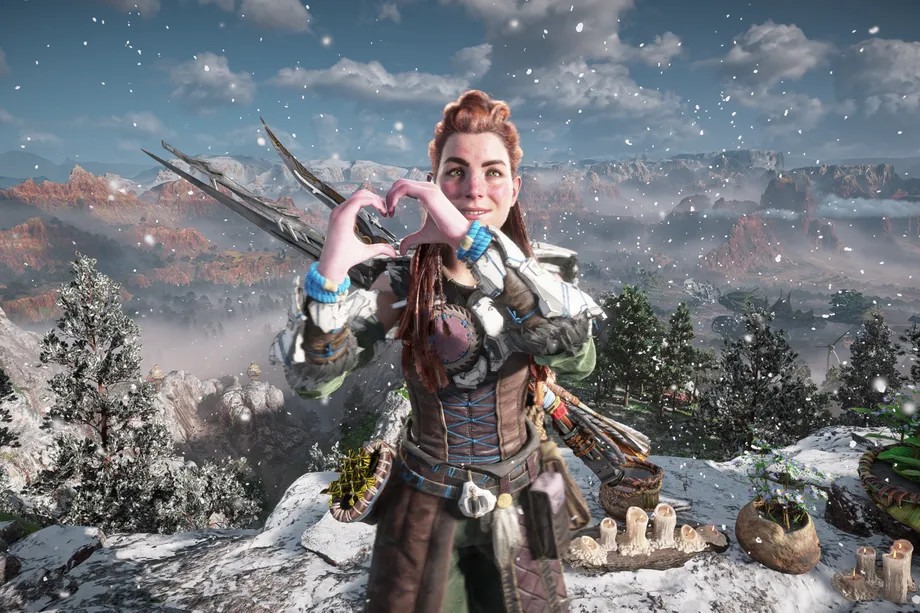
Throughout Forbidden West, the cast of more significant and important characters all demand something more from Aloy than simply her help in acquiring resources or helping save their grandson. They all require something greater from Aloy, whether it be rescue, knowledge, or pity, the main cast of characters seems to follow Aloy with cult-like enthusiasm. Varl, Zo, and Kotallo are all capable on their own but where Aloy seemed to learn the specifics and operation of ancient technology on her own just fine, these three cannot.
We as the audience are never given any reason to believe these three to be anything less than extremely capable and ambitious, but when it comes to learning how to use their focuses they require a training camp within their base at which they practice and await the presence of their benevolent leader to bestow upon them more knowledge. Not only does this dynamic dilute their characters but it also constantly gives Aloy opportunities to put her own arrogance on display. And it seems as though the writers treat that arrogance not as a flaw for Aloy to overcome but instead as a desirable characteristic to strive towards.
Not nearly as capable as Varl, Zo, or Kotallo are Alva and Erend. Alva and Erend are treated by both Aloy and the writers as though they are too stupid to even waste time teaching and therefore are instead in need of Aloy’s pity. Upon meeting Alva for the first time she is, just like everyone else, in desperate need of Aloy’s help. Alva came to the forbidden west with a group led by The Ceo, when The Ceo got too greedy and sent Alva to gather more information she was pinned down by an apex thunderjaw and all appeared to be lost. Luckily for Alva, Aloy shows up and single-handedly dispatches the thunderjaw. A hero that is capable of achieving what no one else can with relative ease.
Before Alva is able to warn Aloy of The Ceo’s instability the two end up dragged along on Alva’s quest that can only be completed with the help of Aloy. After the quest is completed and The Ceo dies in a disaster of his own making, Alva tags along with Aloy back to Aloy’s base of operations because, just like everyone else in the game, it seems as though she is incapable of having her own goals or ambitions and instead depends on Aloy’s pity and kindness to give her shelter. Alva doesn’t demonstrate much in the way of intelligence or capability and her relationship with Aloy is very one-sided.
Erend is similar to Alva in that he consistently receives Aloy’s pity but unlike Alva, he does demonstrate some physical prowess. Erend is shown to be very strong but despite the strength delta between the two, the game makes it clear that Erend is not as skilled a warrior as Aloy. Throughout the entire duration of the game, Erend is treated as though he is Aloy’s kid brother whom her mom forced her to bring along with her friends. Aloy’s pity for and the condescension she shows toward Erend is not endearing to Aloy in the way it was clearly intended to be but instead makes Aloy appear ungrateful and as though she is never in need of anyone else’s assistance.

And finally Beta. Beta is a character who is immediately in need of physical rescue. After Aloy goes to the trouble of rescuing Beta and returning to her base with Beta in tow she continues to assist while the writers give Beta no measurable characteristics of value. Beta’s having been brought up by the Far Zeniths has left her with some emotional trauma that apparently can only be truly overcome with Aloy’s help. After rescuing Beta from the Far Zeniths, Aloy is still tasked with helping her progress and recover on every return trip to the base. Despite Varl’s help while Aloy is away, Beta is only able to make substantial progress with Aloy’s help. Then later in the game when Beta is taken again by the Far Zeniths, Aloy is the only one capable of launching a rescue mission to bring Beta back. Throughout the entire game, Beta is Aloy’s ultimate damsel in distress.
Towards the end of the game, the player fights Regalla, the leader of the Tanakth insurgency. After besting Regalla in combat the player is given the choice of whether to kill her or spare her. Shortly after I moved past this point in the game a friend of mine messaged me asking what choice I made and my response was “spared her because Aloy is a poorly written character whose virtue is never punished so I assume that if that choice has any impact the spare option will be the right one.” Imagine my shock when during the final assault on the Far Zeniths, Regalla chooses to sacrifice herself for the greater good after being inspired by Aloy’s good-hearted nature.
Her actions were predictable because Aloy’s decision to trust her could never possibly have been the wrong one because then Aloy would have made a mistake and that is something that flawless characters are incapable of doing. Aloy’s moral purity and total lack of character flaws is something that is never punished, and even if she chooses to kill Regalla that choice being basically the only one in the entire game that has actual consequence means that the onus for that mistake is a reflection on the player’s flawed moral fiber, not Aloy’s
For more than twenty years, the Master Chief has been a character whom the writers have intentionally left as a blank slate for the player to imprint on. Halo started as a series that was designed for the player to inhabit the role of the protagonist, so while the story occurs around Master Chief, decisions are rarely made by him. One of the difficulties that Halo 5 faced in trying to replace Chief as the protagonist of the series was in differentiating Spartan Locke from Chief. While this could have been easily accomplished by characterizing Locke and allowing him to interact with the story in a more curated way, 343 seemed deadset on continuing to allow the player to inhabit the protagonist.
As a result of this determination, 343 became the creator of their own problem by forcing themselves into a situation in which Locke must be characterized to differentiate him from Chief. However, the character also couldn’t be characterized to the extent to which the player felt as though they could no longer imprint themselves upon him.
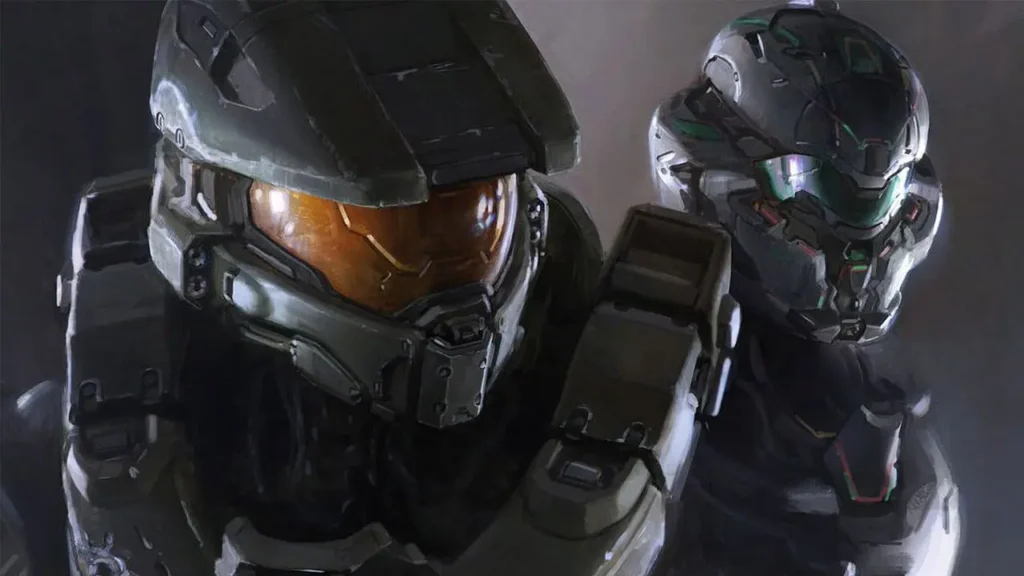
Halo 5 was clearly intended to be the game that moved the series away from its main protagonist and continue into a post-Master Chief universe, but the situation of their own making forced 343 to craft a bland character who behaved like a boy scout in every situation. In order to allow the player to inhabit Locke, the character wasn’t allowed to have any flaws as those flaws might not match up with the player’s own personal character flaws. Locke was a flawless character who was completely incapable of building any sort of meaningful relationships with any other characters in the game.
Unlike Aloy, who is a flawless character that seems to have been born of the idea that perfection is both attainable and desirable, Locke is a perfect character who was born of the concept of the power fantasy. Video games have the option to prioritize gameplay, story, or both and in the case of Halo, the gameplay is the most fundamental part of the series. One of the appeals of the medium of video games is the fulfillment of the power fantasy. No other medium gives the audience the opportunity to experience the feeling of living out things that are physically impossible in the real world. But one of the many downsides of the power fantasy is that the possibility of failure dilutes said fantasy. And so the goals of both characterizing Locke and fulfilling the power fantasy are in direct opposition to one another. Locke is a boring character because he has to be perfect to properly give the player the feeling of power.
The Arkham trilogy of games being Arkham Asylum, Arkham City, and Arkham Knight is in a unique position because they feature a perfect character in the starring role, but one that the audience has also experienced in an imperfect way on multiple occasions. Throughout the first two games, Batman is a character who displays next to zero humility or self-awareness. He is never faced with any sort of emotional struggle and with the exception of Joker his ability to simply physically overpower his enemies leaves him with no respect for any of them. As a character, Batman never has to reckon with any sort of shortcoming or devise a new plan to overcome a challenge he wasn’t able to immediately solve either physically or intellectually. Batman’s inability to fail and his constantly having a quick quip locked and loaded gives him all the depth of a schlocky ’80s action hero. In a way, Batman is a combination of Aloy and Locke in that the character’s prominence in our society demands moral purity like Aloy, and the temptation of the power fantasy of being Batman is something that naturally has significant demand and therefore demands that the character rarely make any sort of mistake or miscalculation like Locke.
Again with the exception of Joker, Batman is never outsmarted or outmaneuvered by his enemies. Throughout the Arkham trilogy, he is never faced with a situation in which he is humbled. As fun as the games are they ultimately can be boiled down to a series of Batman figuring out the villains’ plans, devising a plan to counter their plans, and executing his plan without much difficulty. Because he never fails, Batman is never forced to self-reflect, he is never beaten, the character is never given a challenge to overcome and grow from and as a result, he is perfect to such an extent that he is overwhelmingly boring.

What makes the perfect iteration of Batman throughout the Arkham trilogy unique actually comes from the prequel. Arkham Origins is a prequel story of Batman in his early years, the game was released in the time between the second and third games in the trilogy and gave the audience a small taste of a much more complex version of the same iteration of the character. Arkham Origins Batman is shown to be extremely confident in his own abilities and feels as though he doesn’t need anyone’s help or anyone to rely on emotionally.
Then as the game progresses and Batman has become increasingly closed off, he finds himself in a situation in which Alfred urges him to reach out to Gordon for help, and when Bruce continues to refuse, Gordon takes the situation into his own hands. In the moment in which Gordon assists Batman in disarming firefly’s bombs on the bridge, he not only proves his literal ability but also his commitment to helping to save Gotham. At that moment Gordon gives Batman a peer and an equal in his pursuit of justice.
Then later in the game when Bane attacks Alfred in the bat cave, Bruce is forced to acknowledge that while in theory, his chosen isolationism is what best enables him to be the Batman, in reality, it is that closeness with other humans that is the reason for Bruce to be Batman. And it isn’t until he is faced with the possibility of losing Alfred that he reckons with that fact. The iteration of Batman from the Arkham trilogy is a flawless and perfectly boring character by demand for moral purity and the necessity to fulfill the power fantasy. But what makes this particular perfect character even more unbearable is that we as the audience get a small taste of what could have been through Origins. When given the room to develop a less-than-all-powerful character and the understanding to allow that character to be flawed the Arkham iteration of Batman was stellar and one of the most interesting versions of the character in recent memory.
Ultimately it is the flaws in characters that make for interesting stories. Perfect characters make for situations in which it is nearly impossible to create actual stakes and without stakes, a story has no sense of urgency or meaning. Our societal demands for perfect people and characters created by our determination of guilt by association needs to end. The impossible standards of moral purity created and maintained by social media have made characters unrealistically perfect and therefore completely unrelatable. This level of perfection has poisoned and will continue to poison stories until we learn to understand the value in our differences in perspective and growth from lived experience that makes us and the characters we love unique.

-

 Features4 weeks ago
Features4 weeks agoThis Upcoming Romance Anime Might Just Break the Internet; Trailer Just Dropped!
-

 Features3 weeks ago
Features3 weeks agoDon’t Watch These 5 Fantasy Anime… Unless You Want to Be Obsessed
-

 Features2 weeks ago
Features2 weeks ago“Even if it’s used a little, it’s fine”: Demon Slayer Star Shrugs Off AI Threat
-

 Culture2 weeks ago
Culture2 weeks agoMultiplayer Online Gaming Communities Connect Players Across International Borders
-

 Game Reviews3 weeks ago
Game Reviews3 weeks agoHow Overcooked! 2 Made Ruining Friendships Fun
-

 Features4 days ago
Features4 days agoBest Cross-Platform Games for PC, PS5, Xbox, and Switch
-

 Guides4 weeks ago
Guides4 weeks agoMaking Gold in WoW: Smart, Steady, and Enjoyable
-

 Features2 weeks ago
Features2 weeks ago8 Video Games That Gradually Get Harder
-

 Game Reviews3 weeks ago
Game Reviews3 weeks agoHow Persona 5 Royal Critiques the Cult of Success
-

 Features1 week ago
Features1 week agoDon’t Miss This: Tokyo Revengers’ ‘Three Titans’ Arc Is What Fans Have Waited For!
-

 Game Reviews4 days ago
Game Reviews4 days agoFinal Fantasy VII Rebirth Review: A Worthy Successor?
-

 Guides1 week ago
Guides1 week agoHow to buy games on Steam without a credit card














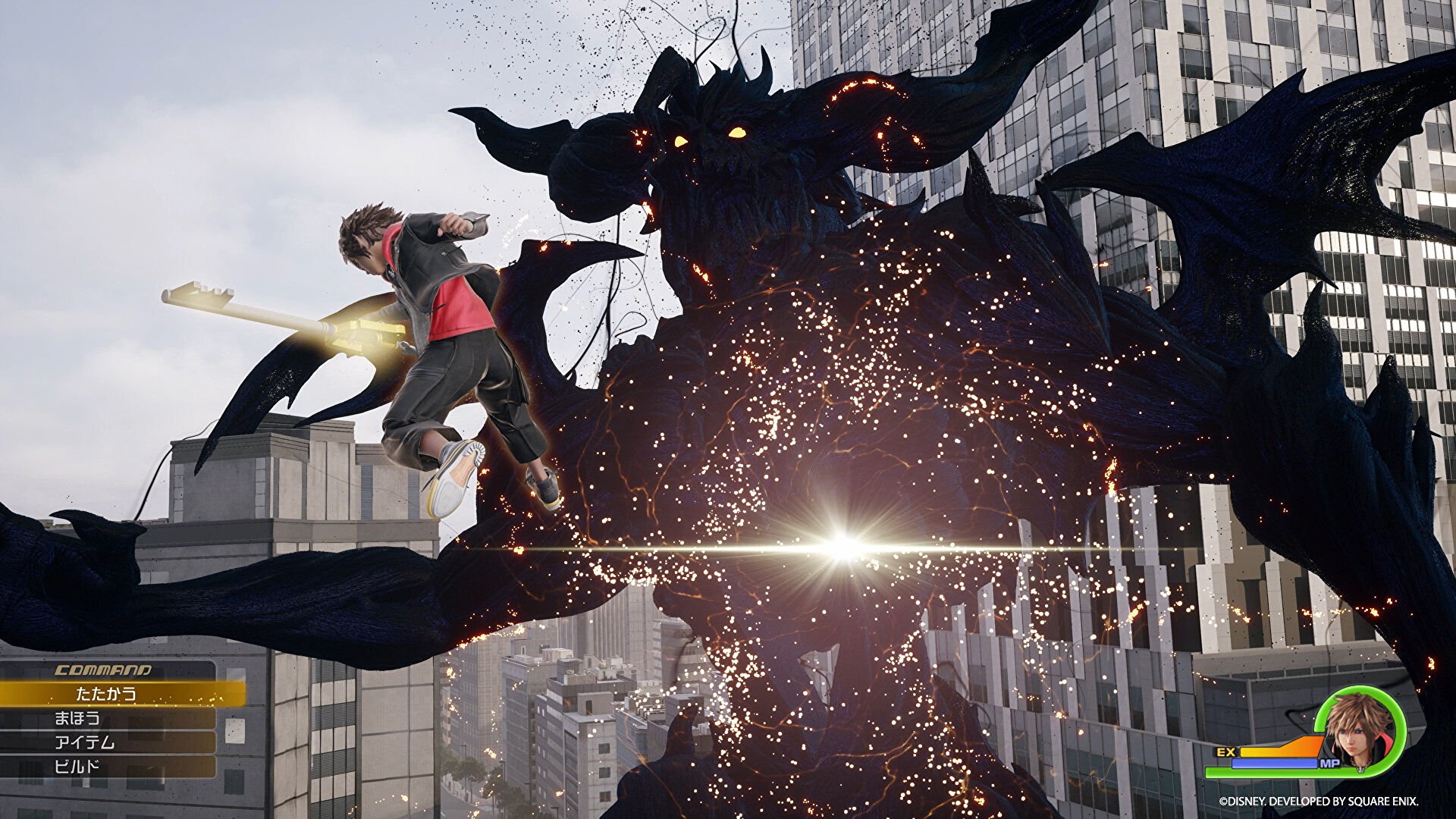
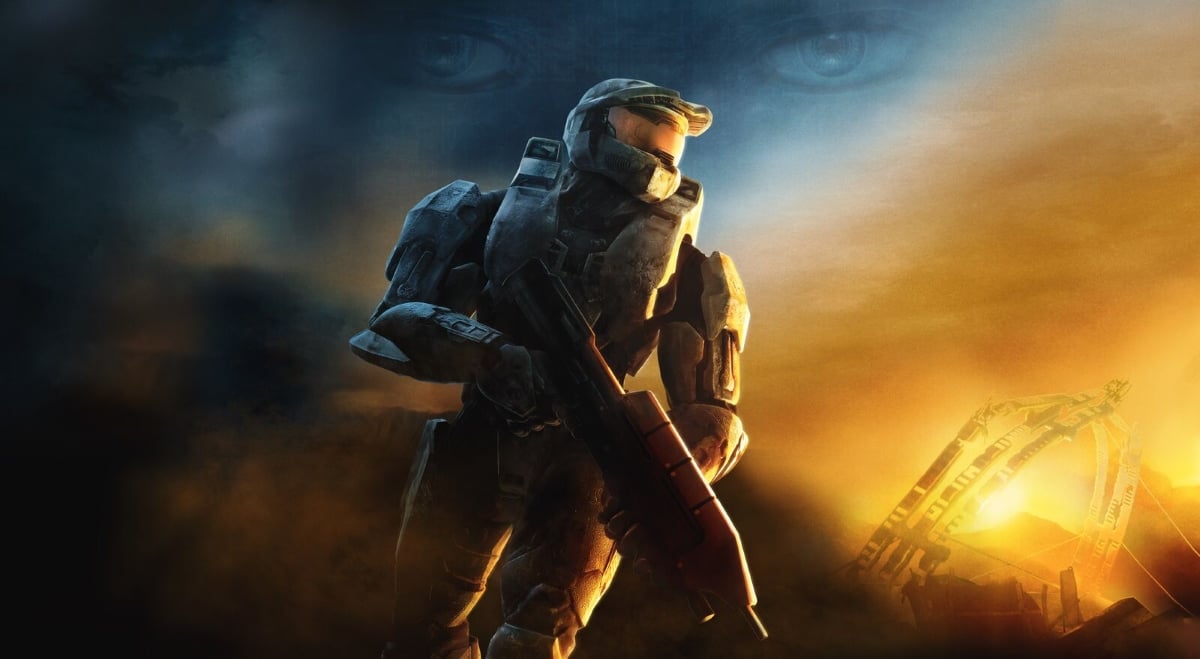



D
March 14, 2023 at 2:41 am
This article is dumb.